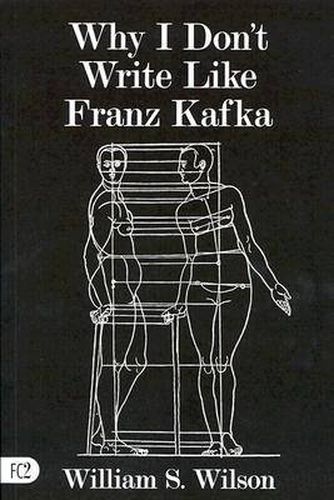Readings Newsletter
Become a Readings Member to make your shopping experience even easier.
Sign in or sign up for free!
You’re not far away from qualifying for FREE standard shipping within Australia
You’ve qualified for FREE standard shipping within Australia
The cart is loading…






FC2 proudly presents a reprint of this 1970s classic; Many of the stories in Why I Don’t Write like Franz Kafka turn on physical operations in a possible future when regeneration of organs is possible. Others reflect intellectual operations as abstract as logic, with adaptations of both Kurt Goedel’s Undecidability Theorem and Bertrand Russell’s Paradox in set theory. The titles are set in lower case, as in a dictionary, with physical and intellectual actions defining the concept in the title. The story
metier: why I don’t write like Franz Kafka,
implies that Kafka responded in his fiction to questions about divine laws that no longer need to be asked in fiction. The epistolary story,
conveyance: the story I wouldn’t want Bill Wilson to read,
is an intimate letter from a woman who had wanted to write fiction. She writes to challenge Wilson’s complacencies with her report of a tragedy which is beyond consolations and the coherence of art. The story,
interim,
chronicles the imaginary reforestation of Scotland, while
anthropology
turns on the actual moment in Structuralism when Claude Levi-Strauss relocates the ear to the back of the head in order to interpret a myth.
$9.00 standard shipping within Australia
FREE standard shipping within Australia for orders over $100.00
Express & International shipping calculated at checkout
Stock availability can be subject to change without notice. We recommend calling the shop or contacting our online team to check availability of low stock items. Please see our Shopping Online page for more details.
FC2 proudly presents a reprint of this 1970s classic; Many of the stories in Why I Don’t Write like Franz Kafka turn on physical operations in a possible future when regeneration of organs is possible. Others reflect intellectual operations as abstract as logic, with adaptations of both Kurt Goedel’s Undecidability Theorem and Bertrand Russell’s Paradox in set theory. The titles are set in lower case, as in a dictionary, with physical and intellectual actions defining the concept in the title. The story
metier: why I don’t write like Franz Kafka,
implies that Kafka responded in his fiction to questions about divine laws that no longer need to be asked in fiction. The epistolary story,
conveyance: the story I wouldn’t want Bill Wilson to read,
is an intimate letter from a woman who had wanted to write fiction. She writes to challenge Wilson’s complacencies with her report of a tragedy which is beyond consolations and the coherence of art. The story,
interim,
chronicles the imaginary reforestation of Scotland, while
anthropology
turns on the actual moment in Structuralism when Claude Levi-Strauss relocates the ear to the back of the head in order to interpret a myth.